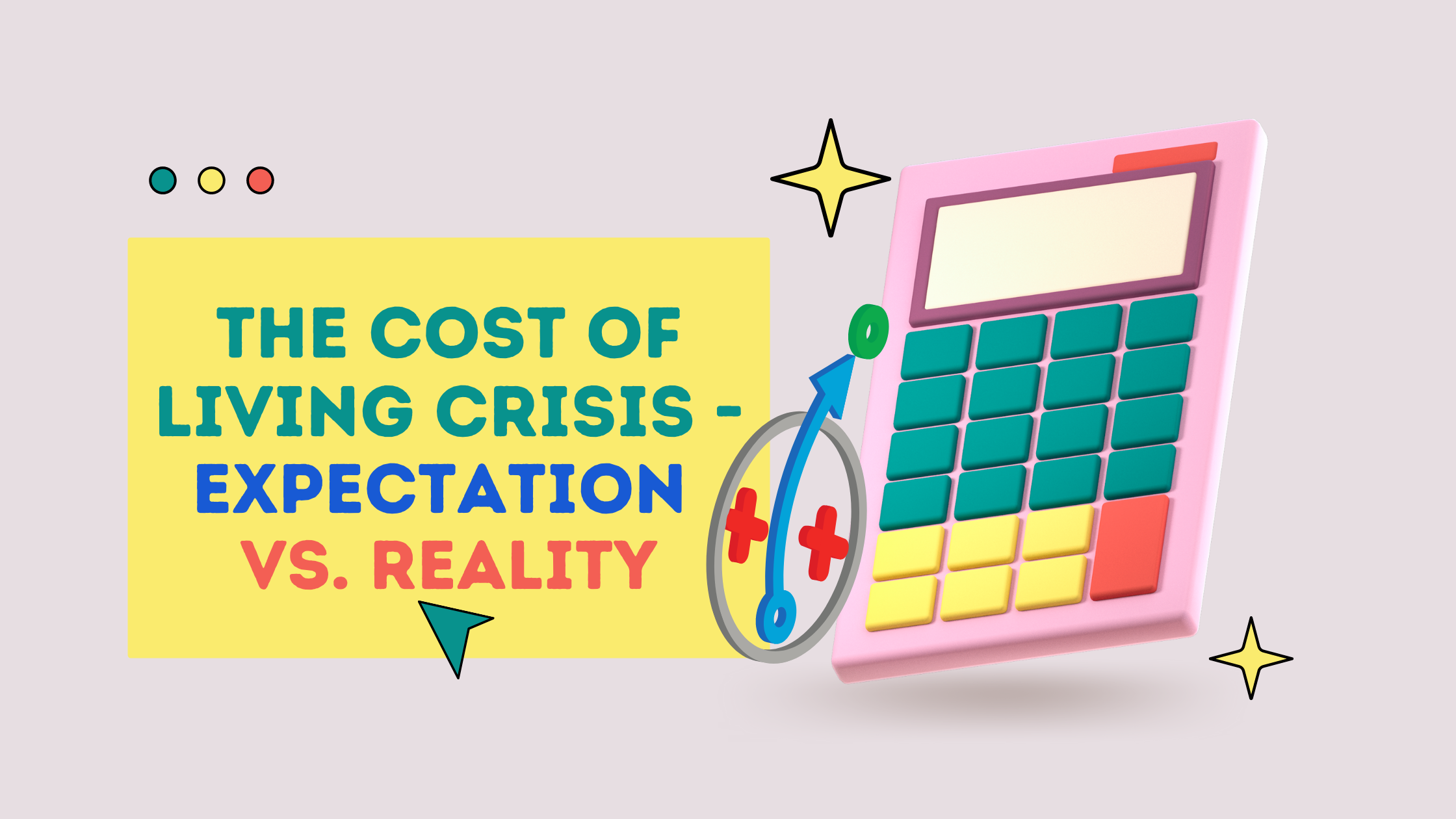The Cost of Living Crisis - Expectation vs. Reality
After the hardships of the last 2 years, one would think that it’s finally time to catch a break. But it is not. Job seekers are facing even greater challenges yet again in the face of extreme price changes and living expenses.
Planning for the unexpected – Is it possible?
The cost of living crisis has caused many families to struggle to make ends meet. The increased cost of fuel, gas, electricity bills, food prices, and taxes mean that families will need to make difficult choices. After the end of the furlough period, many individuals’ working situations have changed; some positions have been terminated, workplaces have been restructured, many people were made redundant or their working hours got reduced.
According to the Office for National Statistics, the unemployment rate (16 and over) was 3.9% between November 2021 and January 2022. Even though the UK employment rate has increased by 0.1 percentage point, many individuals are still struggling to find jobs.
Now that the Covid-19 restrictions have been dropped and the economy has started to return to pre-Covid levels, there are many more positions available throughout the UK as the number of advertised job roles has increased to 1,318,000 between December 2021 and February 2022.
Although there are many opportunities available, the emerging cost of living has created extra challenges for people looking for work. The rising price of fuel may deter many individuals from extending their job search to areas where they would need to travel to. Childcare costs are also proportional and many people are returning to work in the offices, so they have to use childcare services again.
All these sudden changes make it very challenging for job seekers to cope. Planning for the unexpected is nearly impossible when you have not got the means to save and prepare for these unexpected costs.
A band-aid solution – Is it enough?
The DWP has announced an increase in some benefits including Universal Credit, Personal Independence Payment (PIP), and Jobseeker's Allowance (JSA) which will rise by 3.1 percent next month. This decision can benefit individuals and families who are on a lower income or struggling, yet, this increase is in response to the rising energy bills that are set to grow by £700 yearly and the increased national insurance contributions. As it stands, the problem is still present and this solution is only temporary.
Many charities that help unemployed people get back to employment (for example Shaw Trust, Mind, or Aspire4U) are unable to cope with the high demand, so a lot of unemployed individuals have to wait months to receive some kind of employment or financial support. The situation is not manageable or sustainable in the current circumstances.
Non-profit organisations cannot be expected to take on the sole responsibility of helping individuals who have been struggling. A nationwide effort needs to be undertaken to offer some relief to people battling these burdens. Unemployed individuals can face scrutiny from others, and the societal pressure to gain employment and manage finances can have a detrimental effect on these people’s mental, physical and emotional well-being.
Job seekers struggling to make ends meet and support their families are recommended to seek out their local Citizens Advice office where they can receive more personalized help. In the meantime, Citizens Advice’s website offers a range of options to help pay the bills.
For more information, visit: Citizens Advice - Help with bills
The job seeker’s bank or building society may also be able to offer flexible payment solutions to prevent the individual from getting behind their mortgage or rent, household bills, and loan repayments.
These options only provide temporary solutions to ease the burden of financial difficulties on jobseekers, however… There is always a rainbow after the rain. Do not give up as things will get better. It’s important to stay positive even when things do not seem to be looking up.

